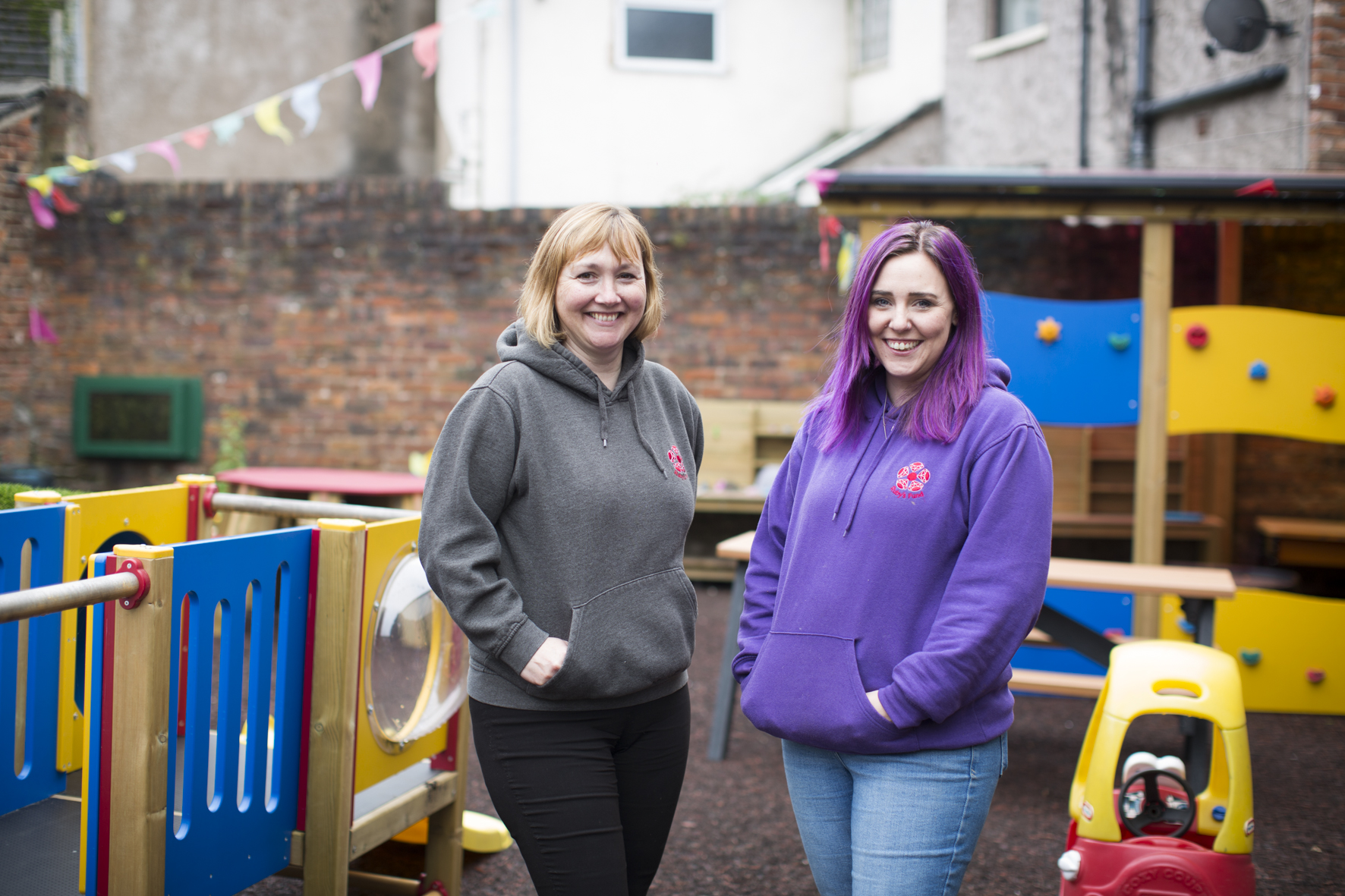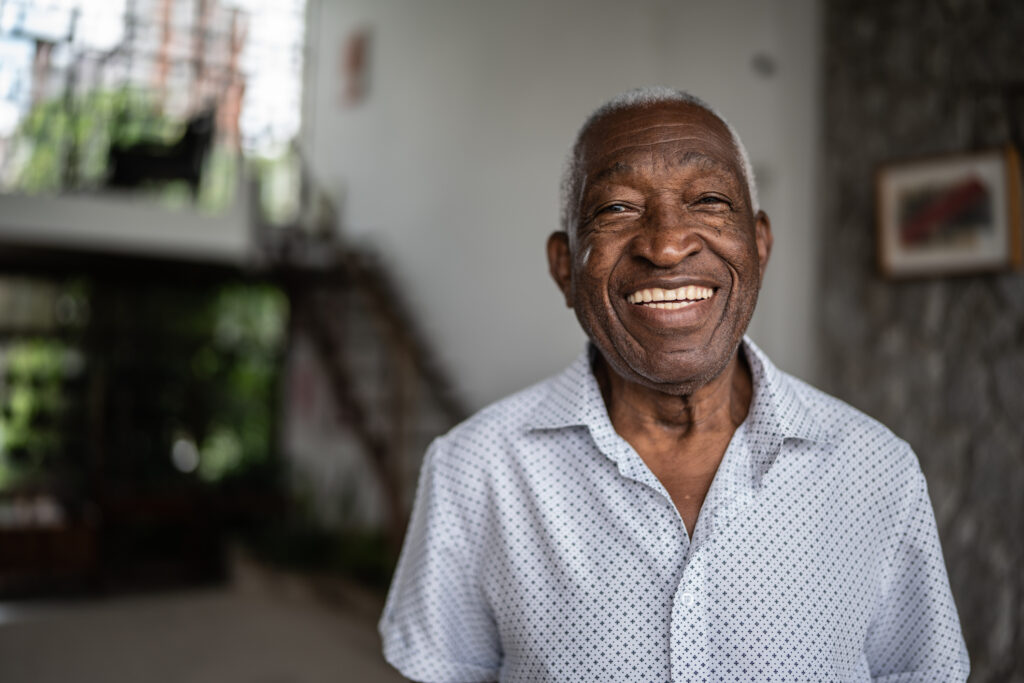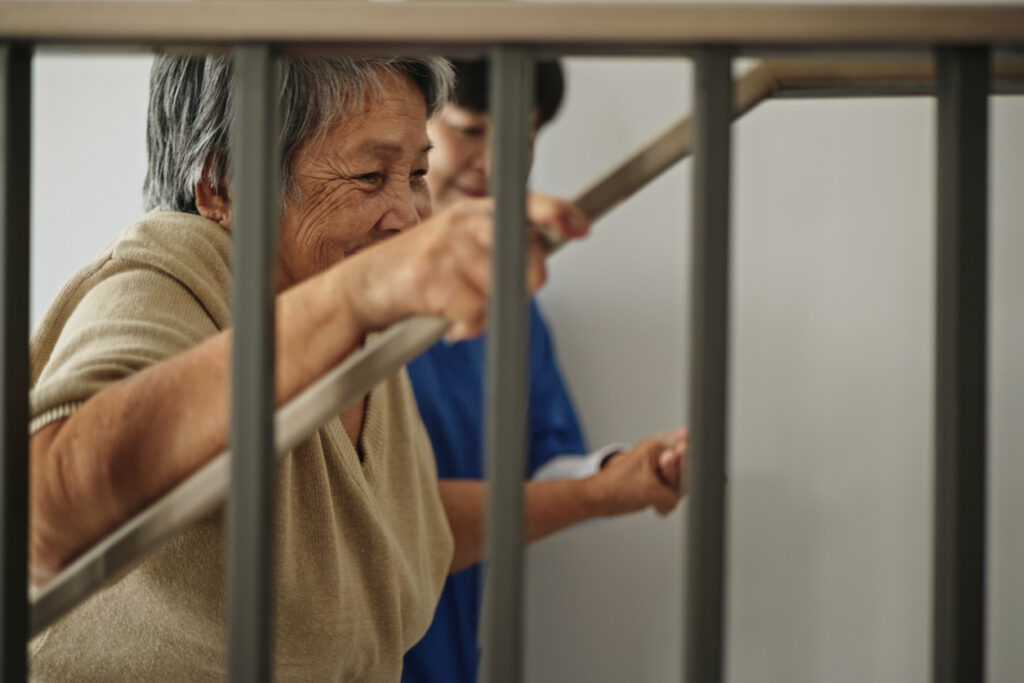
“I wish I’d known how achievable a loan could be”
Ruby’s Fund was given an ultimatum by its landlord – buy the property you’re renting or move out. The charity couldn’t afford the purchase price, couldn’t find another property, and couldn’t find a high-street bank willing to offer a loan.
Ruby’s Fund offers vital services for children with special educational needs and disability (SEND) and their families. Its building is home to the charity’s children’s centre, sensory playroom, sibling room, therapy room, soft play area, staff offices and café. So it was a huge relief when Charity Bank agreed to lend Ruby’s Fund £177k to buy the property. Finance Manager Megan Morris tells us more…
What made you decide to buy your property?
We had no choice! It was always our plan to buy it eventually, but we had to do it quicker than we’d anticipated. We had a 14-year lease, with a seven-year break clause. The landlord came to us the year before the break clause and said, “Look, we want to sell the property, so you need to either commit to buying it or move out.”
What made you choose Charity Bank for your loan?
The Bridgend Centre had bought their building about 12 months previously. So we asked how they’d done it. They’d had a loan from Charity Bank and put us in touch with a lending manager at the bank called Simon. He went through everything with us and took us through the application process.
Had you spoken to anyone before Charity Bank?
We’d looked at various loan providers. No high-street bank wants to lend money to a non-profit organisation. Who wants to lend money to somebody who doesn’t make money?
Charity Bank looked more at who we are as an organisation, how we’re governed and things like that. It was a lot simpler with Charity Bank because they understood the needs and restrictions of being a charity.
This is the first big loan that you’ve taken out as a charity. Was that quite daunting?
Yes, there were quite a few sleepless nights. I had a lot of conversations with the founder, Alison, wondering, “What if we can’t pay?” But to be honest, the thing that worried us the most was whether we could actually secure a loan in the first place, rather than whether we could make the repayments. It was more a case of “We’re fundraising for the deposit, but what if we don’t get the loan?”
Ruby’s Fund
Can you tell me about the fundraising?
We’d only been doing minimal fundraising before we decided to buy the property. We had about £12,000 in the pot. So we launched a huge campaign to buy our building. We never imagined that we would raise £120,000 in six months. That made things a little less daunting because we knew that we had the backing of the community.
We got grants to top the fundraising up. And then we got the loan so we could buy the building. We completed in June this year.
Are you glad that you’ve bought the property?
Yes. We’ve got security now. This is our building, so we can do things that we haven’t been able to do before. For example, our upstairs rooms aren’t accessible because we don’t have a lift. We couldn’t justify putting one in when we were renting. Now, we’ve got the quotes, and the grant proposals are written and ready to go.
How will you fund the loan repayments?
The loan repayments aren’t really an issue to be honest. We’ve actually set ourselves a goal to pay off the loan within five years, or at least be very close to it. Again, that will help us to secure the future of the charity.
We can make overpayments as and when we can, which is great. And also, because of COVID, Charity Bank agreed that in our case the first 12 months’ payments can be interest only, just so that we have time to recover.
We’ve actually been really successful in the last 24 months, but back when the offer was made, in April 2020, nobody knew what was going to happen. We were in the middle of the first lockdown, and it was intense. So that agreement has been really, really useful to us, because it’s given us breathing space for 12 months, but we can make overpayments if we feel able.
Did your trustees have any concerns about taking out a loan? Would they have preferred for the charity to just keep fundraising instead?
If we’d had the time, I think that would have been the preferred option. But we didn’t have the time. However, we don’t want to lose the momentum behind our fundraising. We want to keep going with that so that we can repay the loan within our five-year goal.
How did you find the process of getting the loan?
It was a lot easier than I thought it was going to be! I felt like I was going to lenders and saying, “I know on paper, it looks like I don’t make any money, but please can you lend me £177,000 pounds? Please?” I thought, “No one is going to lend it to us, are they?” But actually, Charity Bank worked really closely with us to strengthen our application before it went to the underwriters. They were with us every step of the way.

Ruby’s Fund sensory room
So the admin team helped you with the paperwork?
Yes. They go through everything with you. If you send something over and it’s not quite what they want, they’ll come back to you and say, “Can you just tweak this bit?” We went through all the paperwork side of it together. And Charity Bank was really supportive while we were going through the legal side of the process as well, because there were a few queries that came back from the underwriters that we didn’t really understand or know anything about.
With Charity Bank, you’re allocated named people to support you. Did you find that helpful?
Yes, we always spoke to the same person in the loan admin team, which was really useful. Our lending manager, Simon, left and Mark Herbert took over. So he became my go-to contact. I never needed to speak to anybody else and Mark checked in with us quite a lot.
Is there anything that you wish you’d known at the start of the loan journey that you do now?
I wish we’d known how achievable it could be. At the beginning, we genuinely didn’t believe that it was going to happen, because we’d spoken to numerous people – financial advisors, companies, high-street banks and so on – and got flat ‘no’s straight off. That does knock your confidence.
We didn’t know much about Charity Bank at the start of our journey. It would have been nice to know that there are lenders who specialise in charities. We could have just gone straight to them in the first place and not had all those difficult conversations with people who don’t understand the logistics of a charity.
Getting accepted for the loan must have been a huge relief?
Yes, and it’s also comforting knowing that people are prepared to invest their money in you. We spend a lot of time battling with grant funders to get money – you get more ‘no’s than ‘yes’s, especially during COVID. So it’s nice to know that somebody believes in you as a charity and trusts that they can loan you money over a 25-year period because in 25 years, you’re still going to be here.
Charities are volatile, especially if they’re reliant on one funding source. Coming out of the pandemic, there are a lot of charities that aren’t going to open their doors again. We are one of the lucky ones who are going to see the other side of the pandemic. Although lucky is probably the wrong word, as it was exceptionally hard work!
It must be reassuring for the staff and volunteers as well, having this space and knowing it’s now yours?
Definitely. While it was hard for me and Alison to go through this process, it was also nerve racking for the day-to-day staff. They didn’t know if they were going to have a job come September because we didn’t know where we were going to be. We didn’t know if we were going to have to change who we are as a charity. There was nowhere else suitable for us to go.
People said to me, “Well, why don’t you just go and rent another building?” But this is our home; we’ve built it up over eight years and made it work for us. How could we do that again?

Alison Parr Founder of Ruby’s Fund and Megan Morris, Finance Manager at Ruby’s Fund
What would you say to other charities or social enterprises who are thinking of taking out a loan to buy their property?
My advice would be to start with a fundraising campaign and be really driven in raising enough money. You don’t want to go through the whole loan process and then find out you haven’t got enough money for the deposit. With Charity Bank, the maximum loan to value that they’d offer us was 60%, so we needed to find at least 40% of the purchase price.
Does most of your income now come from fundraising?
No. The community is really supportive, but Alison always wanted to have multiple funding streams; she never wanted to solely rely on one funding stream, because that’s too risky.
Most of our funding currently comes from trusts and similar organisations. Last year alone, we had money from the National Lottery, the Big Issue and the Postcode Lottery. We’re constantly writing grant proposals. We also have ‘open play’, where the general public can pay to use the soft play area and the sensory room, and we have a café.
We’re now planning to increase the contract side of things, where we’re contracted to deliver services on behalf of the local authority, because that’s a much more secure income stream. The money we’ve had from the National Lottery is to fund a team to look at making Ruby’s Fund more sustainable. In three years’ time, we want 60%-70% of our funding to come from contracts because that will help to secure our future.
And the grants that you mentioned, are they conditional on you owning the building?
The lift grants are dependent on us owning the building. Nobody wants to fund a £60,000 lift in a building that you don’t own. We have been quite fortunate with grant providers; we’ve just re-done the sensory room with the help of grants.
Most grants haven’t required us to own the property, but going forward, I expect some of them will.
Have you seen an increase in need over the last couple of years?
At one point, we were seeing a huge increase in people using our services week-on-week. We used to support 50 families at a time – around 200 individuals when you include parents, siblings and carers. Currently, 530 individuals are registered with us. And they’re just a small fraction of the people who need support.
How many people in total are likely to benefit from the centre every year?
In a normal year, around 2,000 people come through the door. Not all of the children have special educational needs though. We also offer baby yoga, rhythm and rhyme, inclusive play sessions and so on.
Other than the lift, do you have any plans for the building?
At the moment, we’re just trying to find time to stop and take a breath! We’d already added value within the building; it was set up exactly how we needed it, apart from the lift. So we aren’t planning any major changes to the centre; it’s more about where the charity goes as an organisation. But it’s just great to know that we’re here, in this building, and nobody’s going to come along and take it away from us.
Charity Bank has helped numerous charities to move from renting to ownership. If you need finance, please call us on 01732 441919.
About Charity Bank
Charity Bank is the loans and savings bank owned by and committed to supporting the social sector. Since 2002, we have used our savers’ money to make more than 1400 loans totalling over £605m to housing, education, social care, community and other social purpose organisations.
Nothing in this article constitutes an invitation to engage in investment activity nor is it advice or a recommendation and professional advice should be taken before any course of action is pursued.



